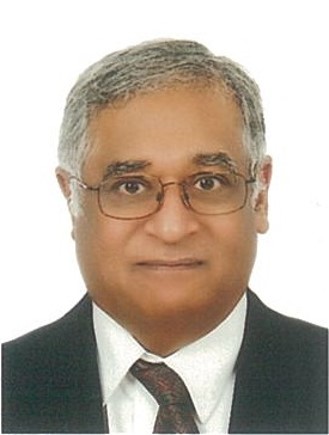Webcasts

Sponsor: Aggreko
Some of the most ubiquitous and, in our opinion, most serious problems confronting operators are the results of seasonal or diurnal variations in ambient air and cooling water temperatures. Generally, distillation column overhead cooling systems are designed for some sort of average summertime cooling water or air temperature. These are routinely exceeded, according to seasonal weather data, for extended periods during the peak summer months. Also, over time, column throughputs have been increased as units were debottlenecked or when other process changes were made. On occasion, purity specifications may change, inexorably becoming more stringent.
We will show examples of how it is feasible to restore column overheads cooling capacities to winter-like conditions by installing temporary, or seasonal, supplemental cooling solutions. Also, we discuss some of these techniques that have been proven successful in a large number of past applications in the petroleum refining, petrochemical, and complex chemicals industries.
View On Demand
Sponsor: Lummus
As fluid catalytic cracking (FCC) feed injection is a significant element in reaching targeted yields within the FCC unit, the feed injectors themselves are a lynchpin in delivering the desired performance. Many factors have driven the continual evolution of feed injection technology to effectively and efficiently vaporize the FCC feedstock and quickly quench the hot regenerated catalyst in the reaction zone when the two come into contact.
Join us for a virtual introduction as Lummus Technology launches the latest innovation in FCC feed injectors. This webcast will highlight how refiners can achieve improved yield performance from faster feedstock vaporization, while addressing operational challenges in areas such as feed circuit hydraulics, steam usage and the cost of retrofitting hardware.
View On Demand
In these volatile times. there is nothing more important than operational excellence. Refineries can drive operational excellence and turn market opportunities into sustainable business value by applying performance intelligence. Extend information transparency, power supply chain agility, increase asset reliability, and optimize efficiency from edge to enterprise. This starts with efficiency. Break down silos and empower teams with real-time situational awareness to improve decision making. In this presentation Aveva will outline several steps your refinery can take today to increase efficiency on your way to operational excellence.
View On Demand
Sponsor: Siemens Energy
Refineries and other industrial plants are under increased pressure to reduce their carbon emissions. but the solutions need to be cost-effective for operators to remain competitive.
Please join us for this webcast and learn how technical advances in gas turbines and compressors can improve the efficiency and fuel flexibility of existing assets. Two reference cases will explore how a petrochemical operator and a refiner upgraded and revamped their equipment to reduce carbon emissions and increase sustainability with their existing asset footprint. Our experts will discuss:
- Advances in portfolio and technologies addressing climate impact
- Gas turbines preparedness for hydrogen/hybrid fuel transition
- Centrifugal and reciprocating compressor technologies and applications

Sponsor: Lummus Technology
This webinar will introduce Green Circle, a division of Lummus Technology established in 2020 to focus on technology for the circular economy, renewable chemicals/fuels, and decarbonization of energy and assets. You will learn about Green Circle's technology innovation areas, proprietary offerings, and strategic partnerships.
Green Circle SMEs will share key insights on currently available technologies for licensing, our vision for the Energy Transition and the role that Lummus and our industry partners can play in accelerating this transformation.
View On Demand
Sponsor: Siemens
Within an environment which is increasingly competitive and complex, projects within process industries are under scrutiny. About 80 percent of the total cost of a plant project is determined during the process design phase, which is why a reliable set of engineering deliverables and cost estimations at this stage is essential.
The value of streamlined business processes and standardized designs is typically underestimated, but it is key for reduce CAPEX. Chevron Lummus has achieved significant benefits by standardizing their pre-FEED projects design packages.
Join our webinar and learn how standardized designs since FEED phase actually impact a project and reduces CAPEX and what was the approach Chevron Lummus has applied.
View On Demand
Sponsor: Swagelok
Process fluid sampling plays a critical role in maintaining accurate, profitable industrial processes. Pulling liquid samples is often necessary for validating process conditions, ensuring end products are up to specification, and evaluating environmental emissions. Grab sampling—also called spot sampling, laboratory sampling, field sampling, or closed-loop sampling—is a useful way retrieve these samples, but it can be challenging to execute correctly.
Learn what it takes for operators and technicians to perform liquid grab sampling correctly in our upcoming webinar on July 28. Find out how to avoid the small errors can negatively impact sample representativeness and production efficiency, driving up operating costs. Walk away with a better understanding of:
- The value of using sample bottles vs. sample cylinders
- How to maintain a standard liquid sampling process
- The importance of properly designed sample panels

Sponsor: Honeywell
2022 is around the corner and you need to drive results from the get-go. Large enterprises like yours are often challenged by siloed organizations & decision support systems while trying to solve an end-to-end optimization problem. With Increasing volatility in the market, integrated decision making through improved cross-functional awareness is the need of the hour.
Plant-wide optimizer enables consistent orchestration of various functional silos that will help organizations optimize Product Inventories, Quality & Timing in the most profitable way.
Plant-wide optimizer delivers end to end optimization through three results-oriented guiding principles:
- Speed & agility - Optimize every minute by using dynamic models resulting in real-time feedback & precise control.
- Comprehensive Scope - Manage inventory & deliver optimal material routing across the enterprise by integrating process optimization with planning, blending operations.
- Feasibility of Solution -Delivers near real-time optimization with integration from planning down to managing constraints on each individual unit by using patented concepts of around key decision variables.
Register for this live webinar to learn how you can leverage Plant-wide optimizer to deliver a combined multi-scale optimization solution across your enterprise.
View On Demand
- YPF, Eni and XRG sign joint development agreement advancing 12-MMtpy Argentina LNG project 2/12
- Maire launches new technology to produce PTMEG, the key polymer composing the spandex fiber. 2/12
- Verde Clean Fuels announces suspension of development of Permian Basin gas-to-gasoline project 2/12
- Vietnam's largest refinery to operate at 120%-125% of designed capacity in Q1 2/12
- Indonesia's Medco expansion plans bet on rising energy demand in Southeast Asia 2/12
- Brazil to rebuild ethanol stocks in new harvest after 21% drop in 2025-2026 2/12




